The changing face of women in agriculture
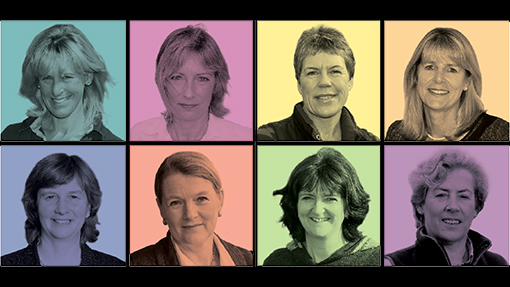
For the first time in history, two women are standing for the NFU vice-presidency. Olivia Cooper explores how the role of women in agriculture is changing.
This is a man’s world – or so the song goes. And one might think that nowhere is that more true than in farming. But women have played a pivotal role in food production across the globe for centuries – indeed, they make up 43% of the agricultural labour force in developing countries and now hold some of the top jobs in the Western world.
In the UK, the First World War was a real turning point, with women taking over traditional farming roles as men went off to war. Increasing mechanisation reduced the physical demands of the job, enabling more women to work the land.
There are now 23,000 women farming in their own right in Britain – plus thousands of others farming in partnership with their families.
Their contribution is often overlooked, but must never be underestimated, says Ionwen Lewis, former president of the Women’s Food and Farming Union. “I wouldn’t suggest for a minute that women are better than men – but we are different,” she adds.
Times are also changing across Europe. In 2011, Spain changed the law to allow women to own land, and similar reforms are under way in Ireland, she points out. “It’s tough for anyone to get into farming; but there are some really good women in farming today and they make a great contribution to the industry.”
Alongside the hidden farming stalwarts, there are a growing number of high-profile women taking top jobs in both core farming and ancillary industries.
So who are they and where have they come from?
Minette Batters
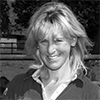 Currently standing in the NFU presidential elections, Minette Batters keeps 100 suckler cows at her farm in Wiltshire. Having grown up on a tenanted farm without succession rights, she found a novel route into the industry, renovating two derelict cottages in return for a Farm Business Tenancy.
Currently standing in the NFU presidential elections, Minette Batters keeps 100 suckler cows at her farm in Wiltshire. Having grown up on a tenanted farm without succession rights, she found a novel route into the industry, renovating two derelict cottages in return for a Farm Business Tenancy.
Ms Batters has since built up the beef herd, and runs a horse livery, an on-farm catering business, and has converted an old barn into a wedding and events venue.
After becoming chairman of the Wiltshire NFU, Ms Batters progressed to the regional board and the governance board. “Farmers in the South West are very active in the union. They care passionately about farming and just want the best representative they can get, whether that’s a man or a woman.”
Ms Batters was also instrumental in setting up Ladies in Beef and Great British Beef Week.
“There are now about 80 Ladies in Beef across the country, juggling families and working farms; women are the absolute backbone of agriculture.”
Having trained in catering, Ms Batters believes there’s no harm in getting a second career or diversified business. “There are so many connected jobs in the industry, you don’t always have to take on the burden of farming in your own right. Approach everyone, speak to everyone; you’ll be amazed at how supportive they are.”
Rosey Dunn
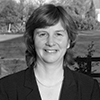 A first-generation farmer, Rosey Dunn is also standing in the NFU elections. As a child she spent a lot of time on her great uncle’s farm, and grew up determined to farm in her own right. Initially working in a point-to-point yard, she took on harvest work during the holidays, and ended up marrying the farm manager.
A first-generation farmer, Rosey Dunn is also standing in the NFU elections. As a child she spent a lot of time on her great uncle’s farm, and grew up determined to farm in her own right. Initially working in a point-to-point yard, she took on harvest work during the holidays, and ended up marrying the farm manager.
“I persuaded him to apply for tenancies, and ended up with a farm in Cambridgeshire, before moving back to a farm in Yorkshire,” she says. She and her husband now farm 400 acres on a mixture of agreements, including beef, sheep and arable.
“Having joined the NFU, once you start putting your head above the parapet, the opportunities arise to speak up for other farmers, and I found I had a passion for doing that,” says Mrs Dunn.
“Other farmers have been very accepting of me once they know that I am, first and foremost, a farmer. I honestly don’t think it comes down to whether you’re a woman or not – it’s about your qualities and strengths as a person that matters.”
Marie Francis OBE
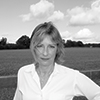 The first woman to ever stand in an NFU election, Marie Francis has seen both sides of the gender divide. “I’m pretty sure there was a campaign against me in the 2002 election – but I don’t know whether that was because I am a woman or because I didn’t do things by the book,” she says. “That said, I got the popular vote from working farmers, and I got a lot more media coverage because I was a woman.”
The first woman to ever stand in an NFU election, Marie Francis has seen both sides of the gender divide. “I’m pretty sure there was a campaign against me in the 2002 election – but I don’t know whether that was because I am a woman or because I didn’t do things by the book,” she says. “That said, I got the popular vote from working farmers, and I got a lot more media coverage because I was a woman.”
An increasing number of women – including Ms Francis – now sit on DEFRA committees, with more female role models encouraging younger women into the industry.
“Women are less confident and less prepared to put themselves forward, so it’s important to help them believe in themselves,” she says.
Christine Tacon CBE
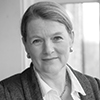 A chartered engineer, Christine Tacon ran the Co-operative Group’s farming business for 11 years before becoming the first groceries code adjudicator last year. “Women and men have different strengths and weaknesses, and the industry needs a mix of both to get the best results.”
A chartered engineer, Christine Tacon ran the Co-operative Group’s farming business for 11 years before becoming the first groceries code adjudicator last year. “Women and men have different strengths and weaknesses, and the industry needs a mix of both to get the best results.”
“Women have a natural ability to communicate and care for the environment; having a different view doesn’t do any harm at all.”
Ms Tacon’s lack of agricultural background certainly did not hamper her when taking on the Co-operative farming role. “I brought my commercial slant, and asked people for their farming expertise,” she says.
“In a way, being a woman has been an enormous advantage, because people wanted to know who I was and what I had to say.”
Helen Browning OBE
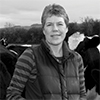 A farmer’s daughter who is now chief executive of the Soil Association, Helen Browning was inspired to farm by her great aunts, who farmed together after the war. “They never married, made cheese and butter, went hunting and drank whisky – they seemed to have a ball,” she says.
A farmer’s daughter who is now chief executive of the Soil Association, Helen Browning was inspired to farm by her great aunts, who farmed together after the war. “They never married, made cheese and butter, went hunting and drank whisky – they seemed to have a ball,” she says.
Armed with a degree in agriculture, Ms Browning took over the family farm at the age of 24. “My father was very supportive, and never once took the attitude that girls couldn’t farm – he just let me get on with it.”
As her organic farming interests developed, Ms Browning initially worked with the Soil Association in a voluntary capacity, and was also involved with the National Trust, MLC, HGCA and the Curry Commission.
Caroline Drummond
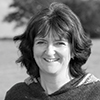 Now chief executive of LEAF, Caroline Drummond didn’t have a farming background – but always had a love for the outdoors. After studying at Seale Hayne, she worked on farms at home and abroad, before landing her dream job at LEAF.
Now chief executive of LEAF, Caroline Drummond didn’t have a farming background – but always had a love for the outdoors. After studying at Seale Hayne, she worked on farms at home and abroad, before landing her dream job at LEAF.
“I believe that if we’re doing good things as an industry it’s vital we tell the public about it,” she says.
Globally, women are vital to agriculture, and a recent FAO report showed that, given the same support in education and resources as men, women in developing countries could boost yields by 20-30%.
“Women bring that productivity back into the family, so when it comes to tackling poverty and hunger, women’s roles are absolutely at the forefront. There are still countries where women are very oppressed, but in the UK I really don’t think gender is an issue anymore.”
Helen Woolley
 A childhood passion for animals set Helen Woolley on a career path in agricultural science, despite not having a farming background. “I loved dairying, and ended up working with ADAS – I had a variety of jobs spanning 22 years there,” she says.
A childhood passion for animals set Helen Woolley on a career path in agricultural science, despite not having a farming background. “I loved dairying, and ended up working with ADAS – I had a variety of jobs spanning 22 years there,” she says.
After a brief career change, Ms Woolley joined the CLA, working her way up to director general 18 months ago.
“I have never felt that my career has been affected because I’m a woman; I think it’s about the individual – the skills and enthusiasm you have and how you take the opportunities that are presented to you,” she adds.
Liz Philip
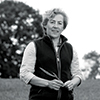 As principal at Askham Bryan college, Liz Philip is in charge of its 2,400-acre farm with 500 dairy cows, 1,600 beef cattle and 1,400 ewes. “It’s quite satisfying to be farming without having inherited a business,” she says.
As principal at Askham Bryan college, Liz Philip is in charge of its 2,400-acre farm with 500 dairy cows, 1,600 beef cattle and 1,400 ewes. “It’s quite satisfying to be farming without having inherited a business,” she says.
More than a quarter of the pure agriculture students at the college are now female. “Ten years ago, that would have struggled to be above 5%, so it’s a significant change among new entrants to the industry.”
Girls do work differently, tending to be more meticulous than their bolder male counterparts, says Ms Philip. “It’s a really nice blend and is important for the industry to have both sets of skills coming through.”
